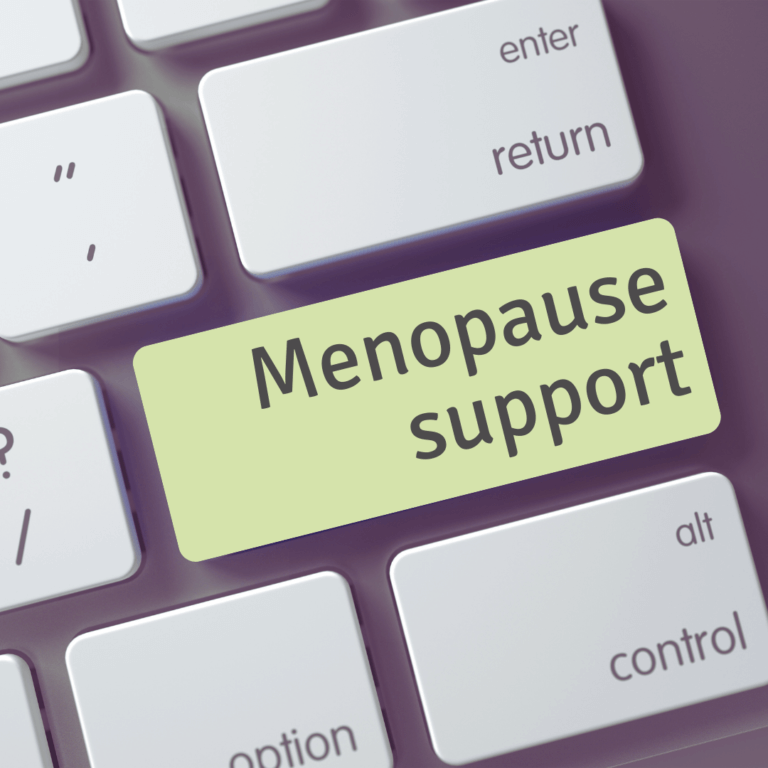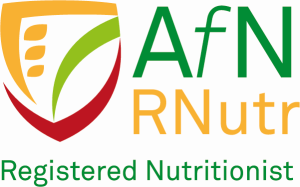In the UK, 4.4 million women aged 50-64 are in work, so a significant number of employed women will be working through their menopausal transition (CIPD, 2019). Almost half of women (45%) say they feel their menopause symptoms have had a negative impact on their work and 47% who have needed to take a day off work due to menopause symptoms say they wouldn’t tell their employer the real reason (BMS, 2017).
The average age of menopause in the UK is 51 years. Menopause symptoms can start a few years before periods stop and can last around four or more years after the last period. The most common symptom is hot flushes, experienced by an estimated 75% of women.
Diet and Lifestyle
Changes to diet and lifestyle can help manage many of the symptoms and help to balance the loss of the health protecting effects of oestrogen after menopause.
As oestrogen levels fall during menopause, risk of heart disease increases. Oestrogen offers some protection from heart disease by reducing the build-up of fatty plaque in arteries and helping control cholesterol levels.
Oestrogen also slows the loss of bone, so after menopause, women have a steeper loss of bone making them at greater risk of osteoporosis than men. Bone loss leaves bones brittle and fragile. There are lots you can do to protect your bones and reduce your risk of osteoporosis as well as positive dietary changes to help make menopause a little easier.
Dietary tips for managing menopause:
Include some protein foods at each meal – As well as supporting our muscles, protein also supports our bone structure. Getting adequate protein, spaced across the day, will help maintain the strength of your bones. Protein also helps satisfy hunger and may help reduce cravings which can be very helpful in maintaining a healthy weight. Protein is also necessary for the production of serotonin and other neurotransmitters important to mood and brain function.
Eat plenty plant foods – Including a variety of fruits, vegetables, oats, whole grains, brown rice and pasta and beans peas and lentils will provide beneficial fibre for your gut microbes. Oats and barley are great foods to include in the diet as they contain a type of fibre called beta-glucan, which can help reduce cholesterol levels. Including a wide variety of plant foods will help increase the diversity of microbes in the gut. Our gut is where the majority of serotonin is produced and so a healthy and diverse gut may help improve mood and manage anxiety, which could help you get a better night’s sleep.
A diet rich in plant foods would also make a good contribution to a range of phytoestrogens. These are plant-based oestrogens that have a mild oestrogen effect in humans when consumed regularly. Evidence suggests phytoestrogens are useful in relieving menopausal symptom, particularly hot flushes.
Calcium – Calcium is important for helping to reduce the losses of bone density that over time can lead to osteoporosis. Calcium is found in a variety of foods including dairy foods like yoghurt, cheese and milk; fortified milk alternatives; fish with edible small bones such as sardines or pilchards; soya beans and soya products; green vegetables like broccoli, kale and cabbage and nuts and sesame seeds.
Vitamin D – is needed for the body to absorb calcium. A vitamin D supplement is recommended in the UK, especially during winter months when we can’t make vitamin D from sunlight.
Omega-3 fatty acids are important for keeping your heart healthy. A healthy balance of fats is important and opting for unsaturated oils like olive oil and rapeseed oil are great choices. The best dietary source of beneficial omega-3 fatty acids is oily fish. Omega-3s may help alleviate night sweats, although there doesn’t seem to be any benefit in reducing hot flushes or improving sleep quality.
Aside from the symptoms associated with menopause, women are often concerned about the effects that the drop in oestrogen has on their overall health and how their body changes at this time in their life.
New Book – Eating Well for Menopause: Advice and recipes to improve your health and well-being
Working with fellow Registered Nutritionist Lynn Burns, we have written a book that addresses common questions asked by women about health and menopause.
In Eating Well for Menopause, you will learn:
- The symptoms and effects of menopause on a woman’s body, heart, bones, weight, sleep and mental health
- The importance of diet in alleviating menopausal symptoms and improving health after menopause
- The lesser-known impacts on hydration and bladder health
- How menopause can affect body image including changes to body shape, hair, skin and the eyes, addressing some of the myths in this area.
The book includes a selection of tailored recipes that have been nutritionally analysed to support women through menopause. Its available now from all major book outlets as a paperback and e-book. We hope its useful!
We have also developed a series of 8 online short courses on Eating Well for Menopause, with lessons to watch with evidence-based information on menopause and practical advice on eating well around menopause.











